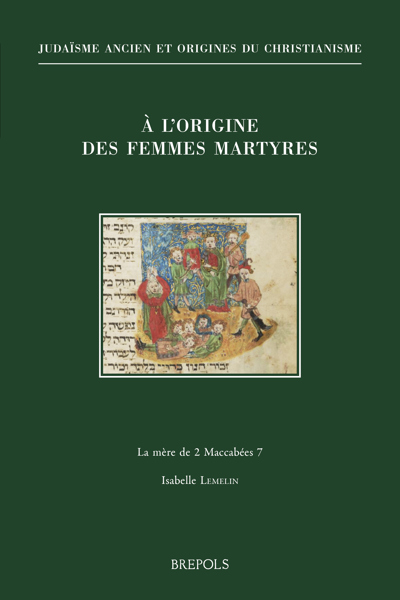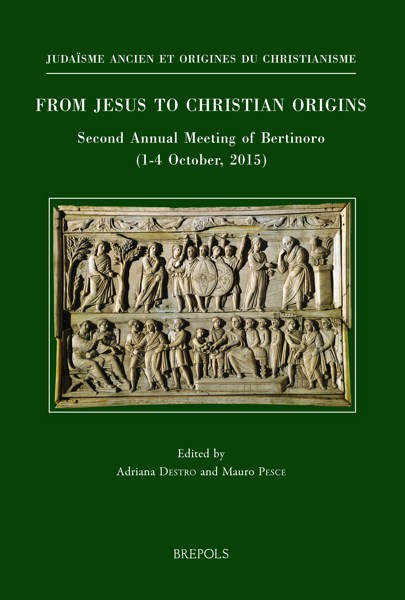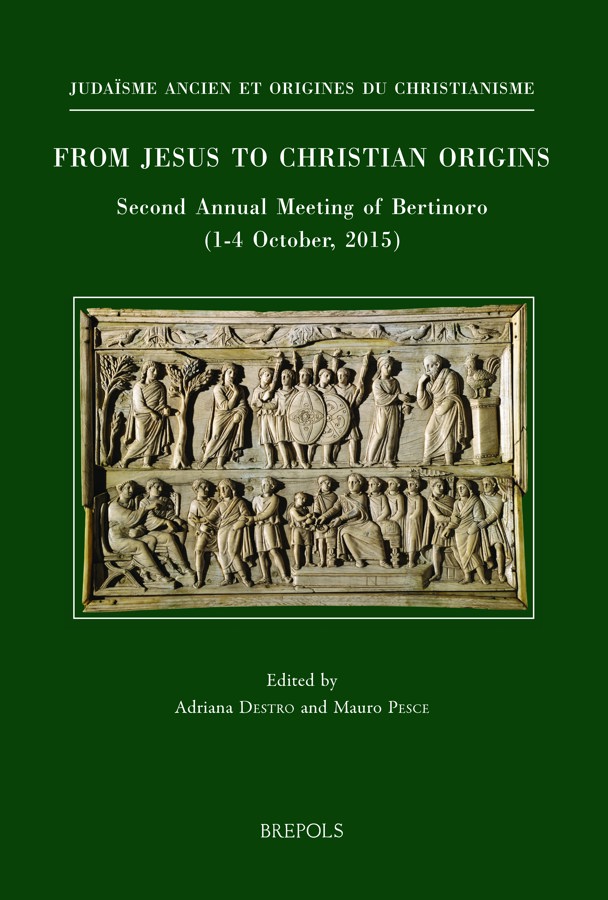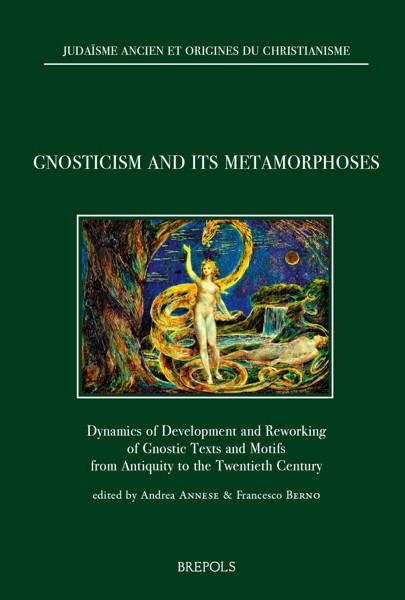
From Jesus to Christian Origins
Second Annual Meeting of Bertinoro (1-4 October, 2015)
Adriana Destro, Mauro Pesce (eds)
- Pages: 534 p.
- Size:156 x 234 mm
- Illustrations:32 b/w
- Language(s):English, Italian, French
- Publication Year:2020
- € 115,00 EXCL. VAT RETAIL PRICE
- ISBN: 978-2-503-58327-3
- Paperback
- Available
- € 115,00 EXCL. VAT RETAIL PRICE
- ISBN: 978-2-503-58328-0
- E-book
- Available
This book provides a survey on new methodologies for the study of Jesus and Early Christianity and on the fractionation of the post-Jesus movement and its passage from Jewish to Roman—Hellenistic cultures
Adriana Destro is Professor of Cultural Anthropology at the University of Bologna.
Mauro Pesce is Professor of History of Christianity at the University of Bologna).
Within the contemporary renewal of the exegetical and historical research on Jesus and early Christianity, this book stresses the importance of new epistemological and methodological perspectives in exegesis and History of Christianity (from the point of view of Cultural Anthropology and Comparative Religion). The articles of the first section present a consequent interpretation of Jesus within Jewish culture of the First century. Jesus activity is located within the Jewish movement of John the Baptizer. His words and political attitude is interpreted in the Jewish context of the Land of Israel under Roman administration. His movement is seen as a sub-group within Jewish society. The section dedicated to the first groups of Jesus’ disciples in the Land of Israel and in the ancient Mediterranean world mainly focuses on three constellations of questions: (a) the multiplicity and fractionation of Jesus’ groups, for example in Jerusalem in the period between 30 an 70 of the First century, (b) the fact that the post-Jesus Movement was sociologically characterized by a multiplicity of sub-groups of Jewish groups and movements; (c) the radical modifications provoked by the abandonment of Jewish contexts when the majority of followers was composed by Gentiles with limited relation with the daily practice of Jewish life and religion. Particular attention is dedicated to the connection of contemporary research with the interpretations of Jesus and early Christianity developed in the modern age.
Adriana Destro, Mauro Pesce, Questions about Christian origins. An introduction
I. Methodology
F. Remotti, A immagine di Dio. Dalla critica delle identità al nodo delle somiglianze
F. Sbardella, Silence and Words: Monastic Soundscapes
S. C. Mimouni, Les paroles et les actions de Jésus de Nazareth dans le judaïsme de son temps. Quelques remarques et réflexions d’un historien
L. Arcari, “Alethurgical” Discourses on Jesus. The Gospel-Narrations as “True Discourses”
R. Alciati, Contra fontes: una via d’uscita dalla crisi per la Storia del cristianesimo
D. Ullucci, Sacrifice, Supersition and the Problem of ‘Spiritual’ Offerings
II. From Jesus to His First Followers
A. Destro – M. Pesce, The Groups of Jesus’ Followers in Jerusalem. Fractionation and Divergencies (30-70 CE)
F. Adinolfi, Jesus and the Aims of John: Abandoning the Underivable Jesus
G. Massinelli, The Parable of the Two Sons and the Quest for the Authentic Parables of Jesus
C. Facchini, Historicizing Jesus: Leon Modena (1571-1648) and the Magen ve-herev
F. Bermejo Rubio, Was Von dem Zwecke Jesu und seiner Jünger an Innovative Contribution? On Reimarus’ Significance in the History of Jesus Research
III. James, Peter, and Paul. Literature, Archeology, and Documentary Papyri
C. Carletti, Archeological Investigations Under the Vatican Basilica: from Pope Pacelli’s Project to Revisions of the 50s
P. De Santis, La ‘memoria’ di Pietro in Vaticano: morfologia e funzionalità
P. Artz-Grabner, Census Declarations, Birth Returns, and Marriage Contracts on Papyrus and Paul’s Ideas on These Matters
C. Antonelli, The death of James the Just according to Hegesippus (Eusebius of Caesarea, Ecclesiastical History 2,23,10-18). Narrative Construction, Biblical Testimonia and Comparison with the Other Known Traditions
IV. Early Christian Groups and Literature
A. Annese, The Gospel of Thomas and Paul: Status Quaestionis, Historical Trajectories, Methodological Notes
T. Witulski, A New Perspective on Dating the Book of Revelation
M. Sommer, How Jewish is the (Ethiopic) Apocalypse of Peter?
G. Marchioni, Shepherds and Good Shepherd: Text and Images in Pastoral Metaphors
E. Rubens Urciuoli, Tertullian, the Bishops of Elvira, and the Precession of Simulacra. Unpacking Strategies of a Christian Political Engagement before Constantine
F. Berno, Erasing Apocalypticism: An Historical Trajectory from the “School of Valentinus” to Plotinus (and vice versa)
L. Cerioni, Feminine and Bridal Imagery in the Book of Baruch of the Gnostic Teacher Justin




